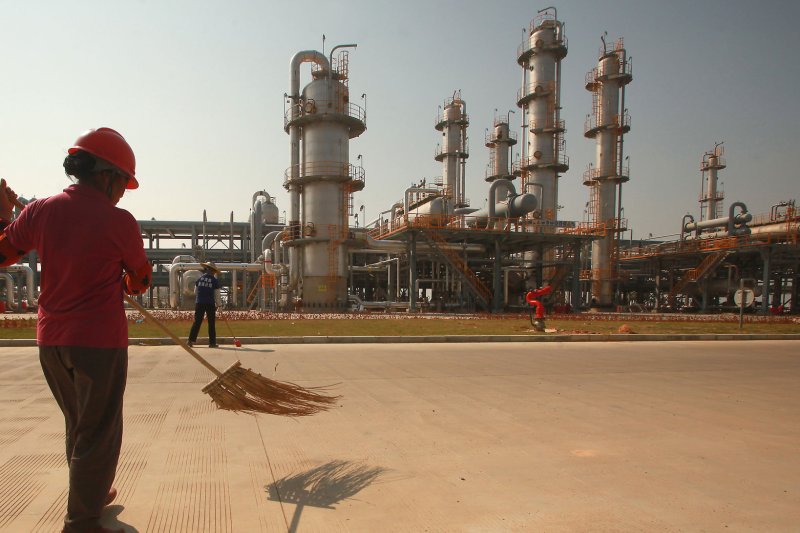International Energy Agency says short-term planning may jeopardize growth in the LNG industry. File photo by Stephen Shaver/UPI |
License Photo
TOKYO, Sept. 16 (UPI) -- Short-term planning from energy policymakers might keep liquefied natural gas off the global stage, the IEA director said during a visit to Tokyo.
"If it can compete, then there is a great chance for gas to become a major and relatively clean contributor to energy security," Fatih Birol, the executive director of the International Energy Agency, said during a speech from Japan. "But the current low prices provide only a temporary window of opportunity -- an opportunity that policy makers and the industry must seize."
The IEA said liquefied natural gas, a super-cooled and denser product with more deliverability options, represents "a golden opportunity" for Asian economies. Asian demand for natural gas is expected to grow steadily through the end of the decade, according to analysis last year.
Japan in particular started relying more on LNG as an energy source after nuclear power was cut in the wake of the 2011 meltdown at its Fukushima Daiichi nuclear power station.
Birol said at the time, the bet on LNG worked because deliverability options meant there were enough supplies on hand for Japan because of lower demand in Europe. While Australia and Papua New Guinea have emerged as new LNG players, security risks in Yemen and elsewhere in the Middle East mean energy supplies in general are vulnerable to "persistent geopolitical challenges," he said.
With the right investment focus, even at a time when energy prices are low enough to curb spending, LNG can serve a critical and fluid role in global energy security.
"Unfortunately there is a risk of complacency and short-termism. Issues of market structure and
supply security are neglected when oil-indexed prices are low," he said. "The attention paid to energy security appears indexed to oil prices. This can prove to be very costly in the long term."















